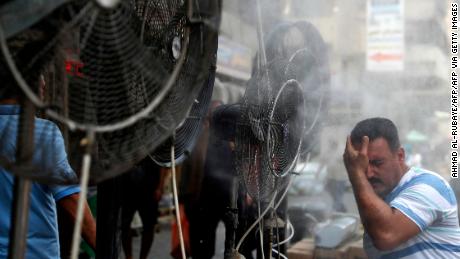
London (CNN)The UK’s recent heat wave was the Great British Bake Off that no one wanted — and it was made at least 10 times more likely by human-caused climate change, a new analysis shows.
But the World Weather Attribution project, which carried out the analysis, also said that its findings are likely to be an underestimate, warning that the tools available to scientists have limitations and are creating a blind spot to just how much of a role humans are playing in heat waves.
Heat waves are becoming more frequent and longer globally, and scientists say that human-caused climate change has an influence on all of them.
at Imperial College London, who leads the WWA project. “It’s a worrying finding that suggests that if carbon emissions are not rapidly cut, the consequences of climate change on extreme heat in Europe, which already is extremely deadly, could be even worse than we previously thought.”
Every fraction of a degree of global warming will bring worsening impacts of the climate crisis. The world has already warmed around 1.2 degrees Celsius on average, and there is a growing consensus that humans must try to keep warming to 1.5 degrees to avoid tipping points, where some ecosystems that the Earth relies on for its ecological balance may struggle to recover.
The scientists said the model results also indicated a heat wave as intense as last week’s in the UK is “still rare in today’s climate,” with a 1% likelihood of it happening each year.
However, once again weather records suggest the computer simulation results are conservative and similar extreme heat events are likely to occur more frequently as well.
In response to the publication of the new WWA analysis, Dr. Radhika Khosla from the Oxford Smith School of Enterprise and the Environment, praised the scientists for their speed.
“By carrying out rapid analysis based on established, peer-reviewed methods the WWA team are able to get evidence-based results into the public domain while we can all still remember the major disruptions from last week’s extreme heat.
This is the latest in a series of studies that all show the same result: climate change makes heatwaves more likely and more intense,” Khosla said.
“The level of heat the UK is now experiencing is dangerous: it puts strain on our infrastructure, economy, food and education systems, and on our bodies. As the study points out, many homes in the UK become uninhabitable in extreme heat. Adapting to rising temperatures, building heat resilience with sustainable approaches, and protecting people is an urgent priority as unprecedented
